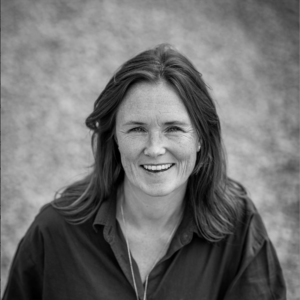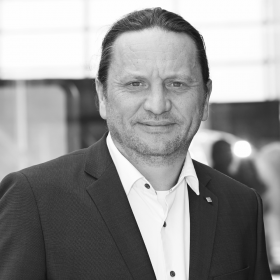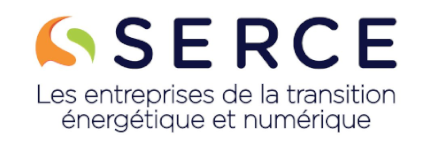About EuropeOn
Who we are
Electrical contractors?
Our board
Our secretariat
Our members
Who we are
Electrical contractors?
Our board
Our secretariat
Our members
Addressing energy, mobility, climate and skills policies, EuropeOn is engaged at EU level to foster synergies between electrical contractors and European policy makers.
Electrical Contracting in Europe
EuropeOn is the European voice of the electrical contracting industry. Since 1954, our association has been the only forum for electrical contractors and their representatives across Europe to come together, exchange and form common positions on the issues that are important to them. Today, Europe is home to about 2.7 million electrical professionals, employed by 420.000 businesses and generating over €300 billions of annual turnover. Together, they are making the green and digital transitions concretely happen in every parts of Europe.
The energy transition and urgency of climate action have pushed electrical contractors to the fore as electrification has been increasingly recognized as the primal and most efficient pathway to decarbonize our energy uses. Electrical contractors provide the electrical installations needed for buildings and infrastructure to decarbonize, enabling regions and citizens to take part in the energy transition.
Alongside the energy transition, electrical contractors are making the digital transition happen on the ground. They are responsible for the installation of digital infrastructure and enable the digitalisation of the energy sector, especially at end-user level.
Against this backdrop, EuropeOn has been endowed with a new responsibility to convey the feedback electrical contractors can provide from the ground to the EU institutions in order to best inform policymakers about the most suitable regulatory approach to implementing the energy and digital transitions.
Who are Electrical Contractors and What Do They Do ?
“THE COMMON MISCONCEPTION ABOUT ELECTRICAL CONTRACTORS IS THAT THEY ARE LIMITED TO THE INSTALLATION OF ELECTRICAL EQUIPMENT. WHILE THEY HAVE THE EXCLUSIVE COMPETENCE TO DO SO, THEY ARE ALSO INVOLVED UPSTREAM AND DOWNSTREAM OF THE INSTALLATION STAGE.”
Electrical contractors are the companies and businesses performing electrical work. Our modern world is electric and electricity is poised to become the fuel of choice for the energy transition. And this world is made possible thanks to electrical contractors, needed to perform work in a great variety of situations and applications.
The diverse range of projects requiring their expertise entails great differences among companies. The size can go from a single, selfemployed professional focusing mainly on domestic installations to a multinational company with thousands of employees undertaking large-scale renovation or infrastructure projects. The workforce can differ as well, covering a wide skillset and a variety of educational backgrounds, ranging from electricians to engineers, with knowledge in basic electrical infrastructure, electrical machinery or IT connections, alongside business engineers, managers and more.
The common misconception about electrical contractors is that they are limited to the installation of electrical equipment. While they have the exclusive competences to do so, they are also involved upstream and downstream of the installation stage. Upstream, they work with architects, engineers, quantity surveyors, building contractors and the final client to provide pre-engineering and installation advice. And they also assist manufacturers in the development and testing of new products. Downstream, they cooperate with clients and facility managers to provide maintenance and servicing of electrical installations. Often involved with the design of installations, they are uniquely prepared to handle the day to day operations of an electrical system.
A second misconception is that electrical contractors are limited to wiring lights or fitting electrical sockets in residential buildings. While this is the example we are all familiar with, businesses of all sizes perform work at larger scales and in other markets.
When it comes to buildings, in addition to dwellings, electrical contractors work on hospitals, schools, commercial or industrial buildings, such as factories, warehouses, data centers, etc. Non residential buildings require complex electrical installations, often managed by automation and control systems, to deliver the needed electricity efficiently and cost-effectively.
In addition, the uptake of electric vehicles has led many electrical contracting businesses to start installing and maintaining charging points both in industrial and residential environments.
Finally, electrical contractors are just as involved in new construction projects as in renovation or refurbishment projects for existing buildings or infrastructure.
Electricity, as widespread as it already is, is set to take over from fossil fuels in several new applications to respond to climate objectives. Electrical contractors need to keep up to date with the newest technologies (all using electricity) and add to the wide array of services they already supply. Not only is the energy transition calling for more electricity but so are our lifestyles. The ongoing digital revolution has already changed the way we behave and introduced a greater number of electrical devices and services into our daily lives. Electricity has underpinned this shift and it is now clear that a sudden halt in electricity supply would cause chaos in our modern way of life, highlighting the value of qualified electrical professionals responsible for bringing us our electricity.
A SECOND MISCONCEPTION IS THAT ELECTRICAL CONTRACTORS ARE LIMITED TO WIRING LIGHTS OR FITTING ELECTRICAL SOCKETS IN RESIDENTIAL BUILDINGS. WHILE THIS IS THE EXAMPLE WE ARE ALL FAMILIAR WITH, THEY PERFORM WORK AT LARGER SCALES AND IN OTHER AREAS.
Our Board

President
Dit is nog wat extra tekst
Kimmo Hallamaa
Finland

Vice-President
Dit is nog wat extra tekst
Emma Elheim Karlsson
Sweden

Management Committee member
Martin Böhm
Germany

Board Member
Martin Bailey
UK

Board Member
Olivier Toggenburger
France
Board Observer
Angelos Kountourgiannis
Greece
Board Member
Manel Roma Sólvez
Spain





















